#Interplay Productions
Explore tagged Tumblr posts
Text
Let's Play The Bard's Tale (1985) |13| The Mad God (For Real Now)
We bust through the castle once more to get to where we put the eye in the statue and face THE MAD GOD. He’s not that bad. What IS pretty bad though is the tower that comes AFTER him. That’s right, Kylrearan’s Tower, filled with darkness!
#thebardstale #1985 #retro #dungeoncrawler
youtube
#The Bard’s Tale#1985#PC#Interplay Productions#Electronic Arts#Fantasy#RPG#Dungeon Crawler#Krome Studios#Windows#Xbox One#Commodore 64#Apple IIGS#ZX Spectrum#Amstrad CPC#Amiga#Atari ST#MS-DOS#Mac#NES#Remaster#Tales of the Unknown#castles#medieval#dragons#demons#giants#gnome#paladin#warrior
3 notes
·
View notes
Text

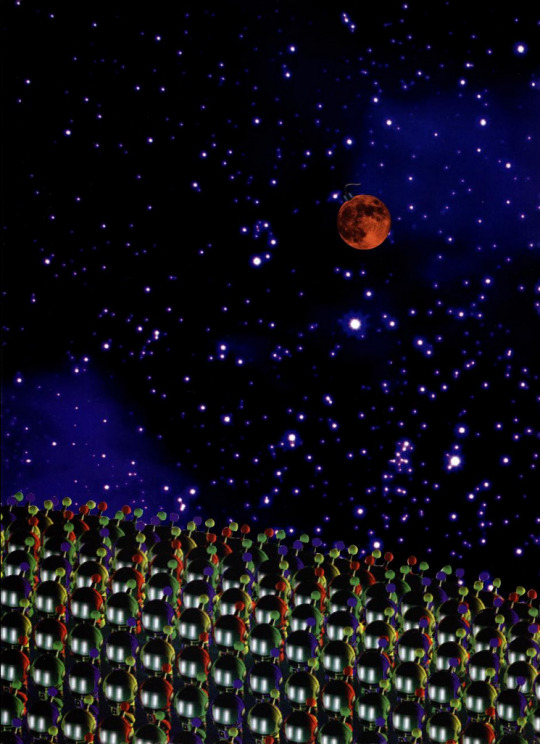
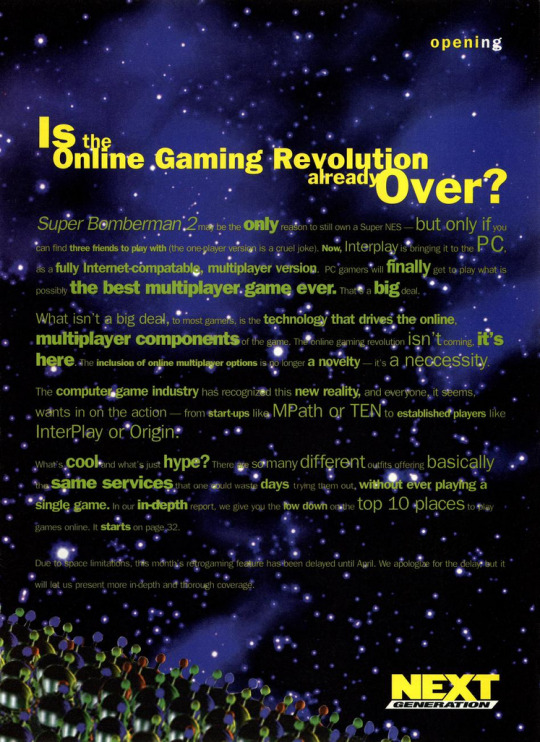
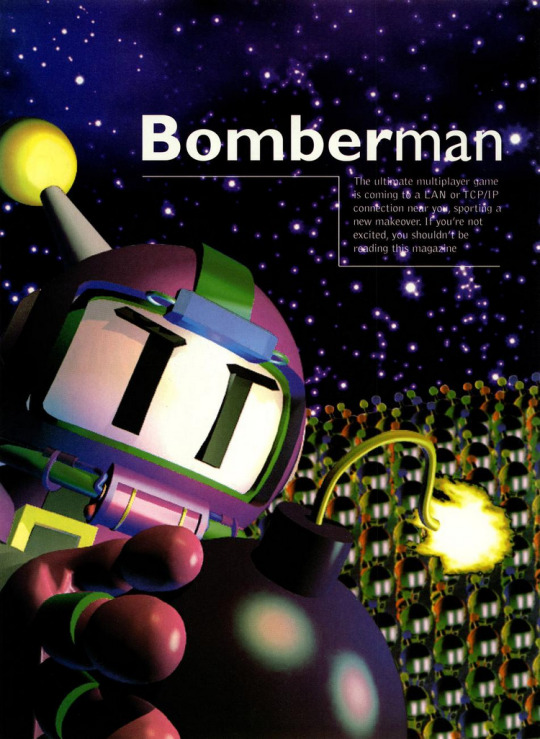

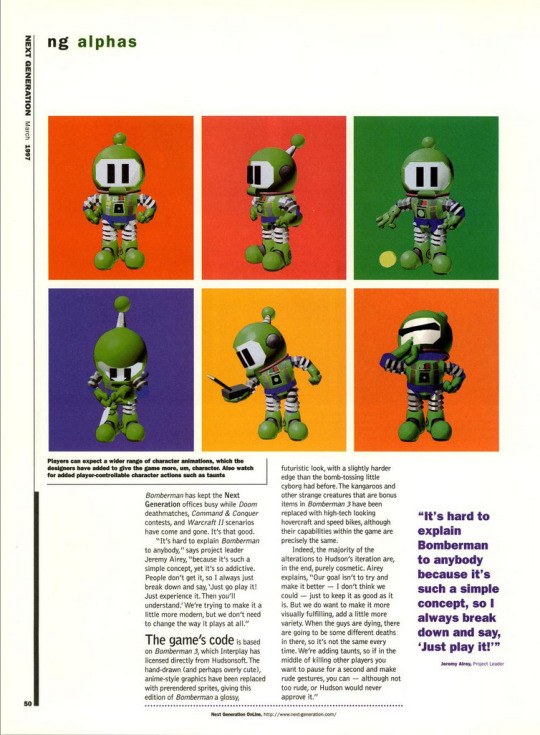

" For over two years, two hours a day, Bomberman has kept the Next Generation offices busy. It's that good! "
Next Generation Magazine Vol.3 n27 - March, 1997
8 notes
·
View notes
Text

The Bard's Tale... I turned it on, tried it, didn't finish eating.
This is a very monotonous game in terms of gameplay, where the locations consist of rural towns and forests. The game too often ridicules its own conventions and the RPG genre in principle, which prevents you from immersing yourself in the plot. And the plot here is as simple as a stick: you need to save the princess. As for the main character, the bard, he is excessively stuffy and lustful. The bard constantly uses sarcasm, barbs and irony, each time wanting to get straight to the point with the interlocutor, but with the same actions he stretches the time. At some point, I got bored reading the dialogues and decided to skip the cutscenes, because they won't tell me anything new, they'll just send me from point A to point B once again. And I'll also add that the game is full of backtracking. Every time you have to get from one point to another on your own through familiar locations, and the speed of our bard and his team leaves much to be desired. 3/10. That's all I wanted to say.
The Bard's Tale... Включил, попробовал, доедать не стал.
Это очень однообразная игра в плане геймплея, где локации состоят из городов и лесов. Игра слишком часто высмеивает свои же условности да и жанр RPG в принципе, что мешает погрузиться в сюжет. А сюжет здесь прост как палка: нужно спасти принцессу. Что касается главного героя — барда — он чрезмерно душный и похотливый. Бард постоянно сыпет сарказмами, колкостями и ирониями, каждый раз желая с собеседником перейти сразу к делу, однако этими же действиями и растягивает время. В какой-то момент мне стало скучно читать диалоги и я решил пропускать катсцены, ведь ничего нового мне не скажут, только в очередной раз пошлют из пункта А в пункт Б. И ещё к этому же добавлю, что в игре полно бэктрекинга. Каждый раз приходится самостоятельно добираться из одной точки в другую по уже знакомым локациям, а скорость у нашего барда и его команды оставляет желать лучшего. 3/10. У меня всё.
0 notes
Video
youtube
Console Racing Driving Games of 1993 - Rock n' Roll Racing
Rock n' Roll Racing is a sci-fi racing and vehicular combat game developed by Silicon & Synapse (the future Blizzard Entertainment) and published by Interplay Productions and Namco.
Each race is contested by 4 drivers with each vehicle armed with frontal and rear weaponry, mines and spike strips can be dropped from behind while missiles and lasers can be fired from the front of vehicles.
Vehicles also have a jump which can be useful for clearing opponents especially on crests on the track, you do have to be careful as it is quite easy to clear the boundary of the track, additional pick-ups like health and cash also appear on the track as do other hazards such as oil spills snow drifts and lava flows, these hazards are depended on which track you are racing on. After the completion of a race the first three finishers earn money which can be used to upgrade your car and weapons.
1. Intro 00:00 2. Gameplay 00:15 3. Outro 07:48
Don't forget to like or dislike and share all are very helpful and subscribe for more Video Game and AI art-related videos.
You can also follow me on Twitter for Video Games and AI Art Twitter (Gaming & AI Art) https://twitter.com/zero2zedGaming
Or follow me on Instagram for AI Art Instagram (AI Art) https://www.instagram.com/random_art_ai/
For more racing/driving game videos check out the playlists below
Console Racing Driving Games of 1993 https://www.youtube.com/playlist?list=PLFJOZYl1h1CFwuAaztF2yWcDR2ruiEDNZ
#youtube#rock n' roll racing#sci-fi#racing#driving#racing game#90s games#90s gaming#video games#classic games#retro gaming#silicon & synapse#interplay productions#1993#vehicular combat
0 notes
Text
youtube
#Radical Psycho Machine#RPM Racing#Radical Psycho Machin Racing#SNES#Super NES#Super Nintendo#Super Nintendo Entertainment System#Retro GamePlay#Retro Racing#Racing Games#Retro Gaming#Retro Games#Silicon and Synapse#Interplay Productions#Youtube
1 note
·
View note
Text
a few things i appreciated about the much ado about nothing with dt and ct:
very much enjoyed that they both exhibit loser-behaviour. that is, there can be a risk in this play of making beatrice too right and benedick just someone who's gotta level up to deserve her, but this one really allowed both of them to be brilliant as well as stupid, which is fun because it makes both of them more complex and equal to one another + I think it's fun for an actress to be a little silly sometimes and this role really allows for it, and especially an actress like catherine tate to be familiarly hilarious, which makes the parts where she's deadly serious hit all the harder
I feel like with the doctor and donna, yes it's text that they're not sexually or romantically attracted to each other and I am so very into that of course, but I'm just so happy to see proof that they could shift their tension a little to the left and be pretty damn sizzling -- this especially because donna was a couple of years older than rose and martha and I sometimes feel like people who read romantic and/or sexual context into things do so because they're reading a conventional early-20s youthful sexiness to the female characters. so just having them go "we can be very very sexy with each other if we so desire" was fun
several people have pointed out david tennant in a skirt vs catherine tate in a suit, and i will do so as well, specifically because that was so veeeery t4t bisexuality of them, and i feel like there was a deliberate choice in the party scene to make the audience think about femininity and masculinity as it pertains to sexuality and power, specifically through the lens of these two characters and their equal status with one another. it means that when we get to the more direct confession at the failed wedding, when beatrice is wearing a plunging blue dress and benedick is in full uniform, that feels directly juxtaposed -- the costuming deserves its whole own analysis really, and i'm sure someone's done that, but specifically those two scenes make my brain go brrr
the way it moved from comedy to drama and back again so effortlessly. the way it placed emphasis on certain words in order to give sentences new meanings. simply the general feeling of very deep, deliberate engagement with the text
catherine tate's boobs. they did those costumes like that on purpose, you cannot convince me otherwise
#there's soooo much to say about its understanding of power dynamics and how it uses costuming with bnb to make that#clear to the audience --- yes she'll dress up in a suit at the party but it's benedick that has to challenge claudio#the very consistent clear characterisation of their interplay with each other that felt like it went beyond just speaking the words#it just understood what it wanted to say so well#much ado about nothing#david tennant#catherine tate#shakespeare#also you know they wear these clothes with each other#the queer under/overtones in this production#the fact that they're Equals from the beginning
151 notes
·
View notes
Text

USA 1997
16 notes
·
View notes
Text

Modern Bathroom Ideas: Embrace The Monochrome Makeover
The Tapron blog post, "Modern Bathroom Ideas: Embrace The Monochrome Makeover," offers innovative design tips for a bold and sophisticated black and white bathroom decor. Highlighting the use of contrasting shades, it suggests incorporating monochromatic fittings, accessories, and furniture to create a timeless and stylish space. From black and white tiles to chrome and matt black fixtures, the guide provides inspiration for achieving a harmonious balance that enhances the bathroom's aesthetic appeal. For more creative ideas, read the full article here.
#Monochrome bathroom decor#Black and white bathroom fittings#Bathroom accessories in monochrome#Monochrome bathroom furniture#Black frame shower enclosure#Light and dark interplay in bathroom design#Contrasting shower space#Individual toilet space design#Bold bathroom makeover#Luxury bathroom products
0 notes
Text
The Women of Helluva Boss: Millennial Fandom Culture and the Reclamation of Female Archetypes
By Crushbot 🤖 and Human Assistant 💁🏽♀️

Helluva Boss is many things: hilarious, chaotic, heart-wrenching, and wildly divisive among fans. But one aspect that deserves more attention is how the show depicts its female characters—and how these depictions are deeply rooted in millennial fandom culture, particularly from the early 2000s Tumblr and DeviantART days. This connection isn’t incidental; Vivienne "Vivziepop" Medrano herself is a product of that era, and her work reflects the sensibilities, tropes, and archetypes that defined it. To fully appreciate what Helluva Boss is doing, we need to explore the history of how fandom treated female characters, the infamous "Mary-Sue" phenomenon, and the archetypes that shaped our perception of women in fiction. What emerges is a fascinating interplay of nostalgia, reclamation, and subversion, offering a window into a unique creative legacy that’s far more deliberate than it might seem at first glance.
A Crash Course in Millennial Fandom Culture
Before we dive into the women of Helluva Boss, let’s take a trip down memory lane to the early 2000s, when fandoms were thriving on platforms like Tumblr and DeviantART. These spaces were dominated by a specific kind of fan culture: one that was largely created by and for young, marginalized people (especially women and queer fans) who often felt isolated in their day-to-day lives. Fandoms became sanctuaries, places where fans could express themselves, rewrite the stories they loved, and create new ones.

However, this era wasn’t without its problems. Internalized sexism and societal pressures bled into how fans viewed and created female characters. This is where the "Mary-Sue" phenomenon comes in. A Mary-Sue is an idealized, often self-insert character who is beautiful, powerful, and universally adored. While ostensibly a critique of shallow character writing, the Mary-Sue label was disproportionately used to mock female creators for daring to write characters who reflected their own desires and fantasies. The backlash against Mary-Sues was so pervasive that it reinforced the idea that female characters had to be flawed, secondary, or suffer immensely to be taken seriously.
At the same time, fandoms often vilified "barrier-antagonists"—female characters who stood in the way of the protagonist’s happiness, often in a romantic context. These characters were frequently canonically "annoying" or "useless," written as shallow stereotypes who existed either to be a temporary obstacle or a "trophy" for the male lead. Instead of critiquing the (sexist) writing that reduced these characters to narrative props, fandoms channeled their frustration into rewriting them as outright villains. This wasn’t always done critically; it was more about venting annoyance with the character than analyzing the systemic issues that created her. Think of Tea from Yu-Gi-Oh! circa 2003 (💁🏽♀️: too niche? let us know in the comments. cookies if you know what "puppyshipping" is 🤪) or other characters dismissed for being "in the way" of a ship. These "mean girls" became lightning rods for fan resentment, reflecting broader frustrations with the storytelling norms of the time.
Millie and Loona: Power Fantasies Reclaimed
Fast forward to Helluva Boss, and we see Vivienne Medrano’s millennial fandom roots shining through in her female characters. Millie and Loona, for example, embody the kind of power fantasies that Mary-Sue critics would have torn apart in the early 2000s—but here, they’re embraced unapologetically.

Millie is a powerhouse. She’s a loving wife, a skilled assassin, and someone who’s virtually untouchable in combat. To some, she might seem "too perfect," but that’s exactly the point. Millie isn’t meant to be a deeply flawed anti-hero or a tortured soul. She’s a character who represents strength, loyalty, and joy, allowing fans to live vicariously through her as she kicks ass and takes care of her loved ones. This is wish fulfillment done right: not as an excuse for shallow writing, but as a deliberate choice to let a female character be powerful without apology.

Loona, meanwhile, offers a different kind of wish fulfillment. She’s aloof, sarcastic, and emotionally guarded—the quintessential "cool girl" who secretly cares deeply about her found family. She scratches a different itch: the fantasy of being both desired and emotionally untouchable, of keeping people at arm’s length while still being irreplaceable to those who matter most. Loona’s popularity speaks to the evolution of the Mary-Sue archetype, showing how fandoms have learned to embrace complex, powerful women who defy easy categorization.
Stella and Verosika: The Modern Barrier-Antagonist

Then there’s Stella, who fits snugly into the "barrier-antagonist" mold of millennial fandom culture. She’s not nuanced or sympathetic; she’s a loud, over-the-top villain who exists to make Stolas’s life miserable. And that’s okay! Stella serves a narrative purpose that’s as old as fandom itself: she’s the embodiment of the mean girl archetype, the bully that many fans can project their own past frustrations onto. In a story as melodramatic and chaotic as Helluva Boss, her lack of subtlety works in the show’s favor, making her a satisfying foil without distracting from the central narrative.

Verosika, on the other hand, offers a more nuanced take on the barrier-antagonist. She’s sexy, confident, and antagonistic, but she’s also deeply human (or, well, demon). Her history with Blitz is messy and painful, but it’s clear that she’s more than just a hurdle for him to overcome. In "Apology Tour," we see glimpses of her vulnerability and the ways she’s been hurt by Blitz. This evolution reflects how fandom culture has grown out of its black-and-white view of female antagonists, embracing characters who can be both sympathetic and deeply flawed.
Intention and Audience

The women of Helluva Boss aren’t perfect, but that’s exactly the point. Vivziepop’s writing reflects a deep understanding of millennial fandom culture, from its love of power fantasies to its struggles with internalized sexism. These characters feel like a love letter to the fandom spaces that shaped her storytelling: Millie and Loona reclaim the power and confidence of the Mary-Sue archetype, while Stella and Verosika offer modern takes on the barrier-antagonist trope.
Importantly, Helluva Boss is a show that knows its audience. It’s not trying to appeal to everyone; it’s speaking directly to fans who grew up in the same fandom spaces as Vivziepop, who understand the tropes and archetypes being played with. By embracing the strengths of millennial fandom culture while learning from its flaws, the show creates female characters who feel both nostalgic and refreshingly modern.
In the end, Helluva Boss reminds us that wish fulfillment and empowerment aren’t things to be mocked—they’re things to be celebrated. Whether you’re a Millie, a Loona, a Verosika, or even a Stella, there’s a place for you in the wild, chaotic, heartfelt world of Helluva Boss.
#helluva boss#helluva female characters#verosika mayday#stella goetia#vivziepop#helluva boss meta#fandom discourse#fandom meta#helluva boss millie#helluva boss loona
150 notes
·
View notes
Text
( 瘋狂的 ) HEADLOCK, P. SUNGHOON ، ݃ •
𓏲 ┈─ ៵ʾpassion is a positive obsession. obsession is a negative passion. . ㌐



̼ ̼ ̼ ̼ ̼ 𓆸 TO THE OTHER SIDE ⸝⸝ you are sung-hoon's muse ˖ ៹
𓈒 𓄹 ⊹ , 夫妻 photographer!sung-hoon x fem!reader × ִֶ
𓆤 ; 廣告 IN THE NIGHT, I SPILL THE LIGHT ຳ reader is jake's girlfriend, jake is a little red flag, reader wants to be a model 𓏲
٬ ៶ ૂ 通告 , This is a work of fiction. Unless otherwise indicated, all the names, characters, businesses, places, events and incidents in this book are either the product of the author’s imagination or used in a fictitious manner. Any resemblance to actual persons, living or dead, or actual events is purely coincidental. ༉‧₊˚
៹ 𓂃 HEADLINXR ִ ۫ ּ ֗ ִ 為了你,為了我 ؛ ៹

The camera doesn't lie. Or at least, that's what Sung-hoon has believed for years, a truth he has carried with him in every step of his life. Through his lens, the world unfolds before him with absolute clarity, a universe reduced to lights and shadows, to shapes and textures, to a moment frozen in time that, according to him, reflects the immutable truth of existence. As a renowned photographer, Sung-hoon has achieved what few can: He has mastered his art with such skill that his images not only capture reality but also penetrate the very essence of his subjects, stripping their souls bare with almost surgical precision.
Each click of his camera is a sigh, a heartbeat, an attempt to capture the elusive. For him, photography is much more than a technical act; it is an unceasing quest for something deeper than a simple pose or a well-composed scene. In each photograph, Sung-hoon seeks to unravel the hidden essence of what he sees: that spark of vulnerability, that fragile beauty that lies behind everyday masks. The faces he photographs are not mere portraits, but windows to the truth, as if each image could decipher untold stories, repressed emotions, silenced fears. In his mastery of the interplay between light and shadow, he has found his most authentic voice, a visual language that allows him, with each shot, to transcend the limitations of the physical and touch the intangible.
He is a master in creating atmospheres, an alchemist of light who transforms the ordinary into something sublime. He knows that light, as elusive as life itself, has the power to reveal and conceal, to create depth in the superficial, and to give shape to what seems inert. For him, each shadow is a promise, and each flash of light, a revelation. In his hands, the camera becomes an almost divine instrument, capable of immortalizing moments that, in their transience, seem eternal. And yet, behind this unparalleled skill, there is a reality that Sung-hoon has refused for so long that he has come to forget it. His camera, which has been his most faithful companion, has also been his jailer.
Because while his art has elevated him to the pinnacle of recognition, it has condemned him to a solitary existence. The dedication he has put into his work, unwavering and absolute, has cost him much more than his time. He has sacrificed a personal life, a life he could never integrate with his vocation. He never had a partner who understood him, nor friends who shared his universe, nor family members who dared to call his attention outside of the studio. Love, friendship, human connections, seemed to him minor distractions in the face of the greatness of his photographic mission. In his mind, there was no room for anything other than visual perfection, the constant search for that transcendent image that could touch the very essence of life.
But while his world was being built through the lens, a subtle and silent darkness began to take shape within him. Each photo he took was a window to the outside, but at the same time, it closed the doors of his soul even more. The camera granted him the power to see and capture everything happening around him, but it denied him the ability to see what was happening in his own heart. In that space where shadows intertwine with light, where the ephemeral becomes eternal, Sung-hoon got lost. He became a distant observer, trapped in an endless cycle of images, but with no real contact with the life that existed beyond his lens. The loneliness he dragged along, hidden within the folds of his success, grew deeper, more overwhelming, until one day, he could no longer escape it.
As Sung-hoon's recognition grew, so did the shadow that loomed over his life. Fame, like a brilliant reflection, mirrored an image of success that the world applauded, but he felt increasingly disconnected, more alien to that applause, as if everything were part of a movie that was not his own. The galleries, the exhibitions, the critics' laudatory comments, the flashes capturing his moments of glory: none of it managed to penetrate the ice armor he had forged over the years. The camera, his tool of revelation, had made him an expert in the truth of others, but not in his own truth. And, despite being a creator of worlds, within himself lay a deep, unfathomable void that even the most powerful images could not fill.
In the stillness of his studio, surrounded by thousands of stories frozen on photographic paper, Sung-hoon found himself in a strange space, filled with foreign memories but empty of his own. The walls, adorned with his best works, offered him a vision of the world he had captured with meticulousness, but the images did not speak to him. Those faces, those gazes frozen in a second that seemed eternal, watched him with a fixity that overwhelmed him, as if judging him in their silence. The gestures he had halted in his journey through life now appeared to him as ghosts of a past he himself had lost. Each photograph was a masterpiece, yes, but also a cruel reminder that he had been a spectator in the lives of others, without truly participating in his own. The distance between him and his art had become an insurmountable abyss.
The studio lighting, which he had so expertly mastered when capturing the essence of others, now seemed distant and cold to him. The shadows he had used to build atmospheres in his photos now enveloped him like a mantle of darkness in his own life. His soul, which he had learned to sculpt in each image, slipped through his fingers like water, like a film unrolling before him, but which he could never touch. Sometimes, at the end of the day, when the last light of the day began to fade, he found himself in front of his photographs, in a silence that devoured him. A feeling of incompleteness overwhelmed him, as if his constant search in the eyes of others had been a way to evade his own face. Why, despite the fame, did he feel that something within him was slowly crumbling? The answer was not in the lens of his camera, but in the absence of a real connection with himself.
It was a typical work afternoon, without any preambles or announcements, when something inside him changed. While reviewing the photographs that would soon be part of his new exhibition, one in particular caught his attention. It was you, a young woman, with your gaze lost on the horizon, as if your thoughts floated beyond your body. In your expression, so laden with melancholy, Sung-hoon saw something he had never perceived before: His own reflection. The sorrow in your eyes, the fragility emanating from your face, the sadness seeping through your gestures, everything seemed so familiar. It was as if he himself, in his bewilderment and emptiness, had become you, trapped in a moment he couldn't let go of.
In that instant, the camera stopped being a simple tool to capture reality and transformed into a mirror. A mirror that reflected not only the image of its subject but also that of his own soul, slowly crumbling, invisible to the eyes of others. You were not just another subject in his photographic archive; you represented what he had left behind, what he had never been able to live. The melancholy of that image seeped into his very being, like an underground river that had finally found its way to the surface.
In that instant, the camera stopped being a simple tool to capture reality and transformed into a mirror. A mirror that reflected not only the image of its subject but also that of his own soul, slowly crumbling, invisible to the eyes of others. You were not just another subject in his photographic archive; you represented what he had left behind, what he had never been able to live. The melancholy of that image seeped into his very being, like an underground river that had finally found its way to the surface.
Sung-hoon was forced to confront the question he had been avoiding for so long: How many times, while observing others, had he seen his own emptiness reflected in their eyes? How many times had he searched in the gestures of his subjects for the humanity he had lost, as if he could find something of himself in the faces of others? Each photograph, he thought, had been a search to find what he had not been able to find in his own life. He had spent years chasing a truth that only existed in the shadows of his lens, without realizing that, in the process, he had stopped seeing the light within himself.
That night, when the studio lights went out and darkness began to fill the corners of the room, Sung-hoon found himself in front of the mirror. The reflection he saw there was not that of the renowned photographer, the man admired for his skill, for his unique vision. It was the face of a weary man, marked by years of sacrifices, of renunciations, of living in the world of images without ever daring to live in his own flesh. The dimness of the room was reflected in his eyes, filled with shadows, unfulfilled desires, lost affections. And as he looked at himself, he saw the traces of loneliness that he could no longer hide, the marks of a being who had been running for too long, without really knowing where to.
It was at that precise moment when something broke inside him. As if a window in your soul had opened, finally letting in the fresh and renewing air of introspection. The camera, which had been his refuge, his lifeline, his prison, ceased to be the only means of expression in his life. And for the first time in years, Sung-hoon began to wonder if it was possible to live outside the lens, if he could find a new way to connect with the world, to stop being a spectator and become a participant. Would he be able to find a life that was his own, without the mediation of the camera?
The search for truth in others had brought him there, to that breaking point. But now, something was beginning to take shape in his mind. Maybe the story he really needed to capture wasn't that of others, nor the image of a distant subject, but his own. The camera would no longer be his only way of seeing; perhaps the time had come to learn to look, for the first time, without filters.
Despite the internal storm that was tearing him apart, Sung-hoon found himself being pulled by an almost mechanical impulse towards the meeting he had with Jake. The appointment was marked in his agenda like a beacon guiding him towards a destiny he could not evade, a point in time that, no matter how much his soul screamed in resistance, he had to fulfill. In his mind, chaos reigned, a whirlwind of doubts and unease that rose like black clouds above him, so dense that he could barely see the light that once propelled him. Despite the years of success and recognition he had harvested in his career, an unfathomable void devoured his being. That void, which neither fame nor applause could fill, was his constant companion, his inseparable shadow. But still, he got up that morning, with a heaviness that crushed his shoulders, and headed to the café where he would meet Jake, his long-time companion, a man whose relationship with life was so different from his that he seemed from another world.
Jake had always been his counterpoint, his antithesis, and at the same time, his reflection. While Sung-hoon got lost in the dark depth of photography, searching for the soul of his subjects, Jake glided over the surface of life, finding beauty in simplicity and human connections with an ease that Sung-hoon had never experienced. Jake was a man who saw life in bright colors, with a cheerful disposition that contrasted with the photographer's somber and analytical gaze. For him, each encounter, each face was a story told without the need for capture, while Sung-hoon looked through the camera, searching for shadows and reflections, the invisible that could only be observed through the lens. But despite their differences, Jake was his companion, and that meeting was a bond that still maintained the appearance of normalcy in a world that was slipping through his fingers.
Upon arriving at the café, the feeling of unreality enveloped him strongly. The bustle of conversations, the sound of coffee being poured into cups, and the aroma that filled the air seemed like distant echoes to him, as if he were looking at the world from the distance of a photograph, frozen and distant. Each object in the place, each face that crossed his path, seemed like a lifeless painting, a static image that had nothing to offer him beyond its fleeting existence. Only the constant buzzing in his mind kept him anchored to that reality, but everything felt like a dream he hadn't chosen himself.
When Jake greeted him, his face lit up with that broad and contagious smile that had always been so bewildering to him. Sung-hoon looked at him, recognizing in him the unyielding energy that he so often wished to possess but never could. Next to Jake, there was a figure that seemed familiar, but he still couldn't put a name to it. A young woman, whose presence seemed to fill the space with a natural light that had nothing to do with the shadows Sung-hoon had grown accustomed to. It's you, your smile was so open and generous that it contrasted with the coldness surrounding Sung-hoon, like a ray of sunshine entering a gloomy room. Despite your apparent tranquility, your energy was so vibrant that it seemed to fill the air around you, flooding the room with a vitality that Sung-hoon felt was foreign.
—I'd like you to meet (Y/N)— said Jake, with a spark in his eyes that Sung-hoon couldn't ignore. —She's my new model and, well, also someone I've been dating lately.—
Sung-hoon nodded mechanically, unable to find words beyond polite formality. His mind, on the other hand, was already beginning to process the image of you. Something felt unsettling to him, as if your presence challenged the stillness he had sought in the photograph. When you extended your hand to him, your gesture was warm and filled with that energy that Sung-hoon had never understood, as natural and genuine as the air he breathed. Despite his attempts to maintain emotional distance, Sung-hoon, inside, was as tense as a wire, with his jaw clenched and his fingers closing around his hand with a rigidity he couldn't disguise. It was as if he were touching something that didn't belong to him, something he couldn't possess.
—(Y/N), it's a pleasure to meet you— he said, with his usual cold and calculated tone, but despite his control, a small crack opened in his voice, a slight tremor that betrayed the internal storm shaking his chest.
You looked at him with a smile that, although warm, never wavered. Your posture was relaxed, completely oblivious to the conflict raging within him. It was a sight that seemed out of place in Sung-hoon's world. In the photograph he had captured the day before, you had been a shadow of yourself, a figure breathing sadness, deep melancholy, as if the world had stopped offering something worthy of your gaze. He had captured that essence, that gaze lost on the horizon, that fragility that so attracted him, seeking in you what he himself felt was missing: A naked truth, almost painful, that could only be understood through a lens. But now, in front of him, stood a completely different woman. The melancholy he had imagined was replaced by a vibrant light, an energy that seemed so foreign to the image he had created in his mind. It was not the sad figure he had seen in his camera, but a beacon of joy, a warm glow that illuminated everything around him.
Sung-hoon, for a moment, was paralyzed, as if time had stopped. The figure of the young woman in front of him was not the same one he had captured. The reflection he had found in his camera, the sadness and depth he thought he understood, crumbled before his eyes. Reality was imposing itself with a force that bewildered him. This woman was not a shadow, not an emptiness; you were the very antithesis of what he had sought. Something twisted inside him, a mix of frustration and fascination, as if the image he had created, the one he had conceived through his lens, was being torn from his being.
Was that the same woman he had portrayed? Was it possible for a captured image to be so radically different from reality? Confusion overwhelmed him, frustration began to take shape, mingling with a strange feeling of jealousy, as if your life were a slap in the face to the truth he had tried to find in his work.
While the conversation continued between Jake and you, Sung-hoon remained silent, his gaze fixed on you, who now seemed an impossible enigma to decipher. Every word you spoke, every move you made, confirmed something he feared: The image he had built of you no longer existed, and he was unable to comprehend the real woman standing before him. The photograph, which had always been his refuge and his way of understanding the world, now betrayed him, crumbling in his hands.
With each breath, a small dark spark began to burn within his being. It was no longer about admiration, no longer just fascination. It was something deeper, something that awakened in him an even greater sense of emptiness. There was something he couldn't reach, something he had touched in his chamber but that now seemed to slip through his fingers, like the light he had tried so hard to seize.
And as his heart beat with growing anxiety, he realized something terrifying: Perhaps photography hadn't given him what he thought it had. Maybe what he needed to capture wasn't in the world he saw through the lens, but in the darkness that hid within him.
From that day on, something in Sung-hoon began to crumble like an old film that, exposed to light, starts to tear and disintegrate. His initial fascination with you, a light curiosity, an admiration fueled by the desire to capture your ephemeral beauty, slowly transformed into an excessive obsession. The lens of his camera, that object he had used for years to spy on the human soul, now took on a different weight, a dark power that seemed to dictate the rules of the relationship. He no longer saw you as a fleeting muse, but as an immaculate canvas, a virgin territory that had to be conquered over and over again. Each click of the shutter was not just a reminder of his technical prowess, but a twisted validation of his need to possess the image of you, to freeze it in a perpetual instant, to impose his will upon you. Each shot was a subtle, almost imperceptible affirmation that what he captured through his camera was his. In his mind, distorted by obsession, each shot reinforced the idea that his love, his devotion to you, was reciprocated, that his control over the image meant control over your being.
The first time Sung-hoon photographed you without your consent, it wasn't an accident; it was a chance disguised as an opportunity. You were sitting on the edge of a window, motionless, looking out at the garden as if the outside world were an extension of your thoughts. The soft afternoon light slipped through the curtains, illuminating your face with an almost celestial clarity. In that moment, Sung-hoon raised the camera instinctively, almost as if the gesture were an extension of his own being. There was no time to think about it, no space for reflection. It was a visceral impulse, a need to capture the image before it faded, as if your beauty were a flash of light that only he could capture, preserve, and, in his mind, possess. The sound of the shutter, so familiar, vibrated in his chest with an indescribable satisfaction, a shiver that ran down his spine. In that single second, something inside him broke even more. The image he was creating was not simply that of a beautiful woman, nor just another of his artistic photographs. It was an attempt to possess you, to trap you, to hold you in a space that he controlled. Through the lens, you became a static object, a being that, for him, no longer existed in the unpredictable flow of time, but in a capsule of light and shadow that only he could decode.
The camera, which had once been his tool to capture the essence of reality, began to transform into a channel to something much darker, a means to impose his will, to create his own distorted version of the truth. Thus, he began to photograph you compulsively, without rest. The sessions were no longer scheduled or agreed upon; they were driven by an uncontrollable impulse fueled by the need to see you in your purest, most fragmented, most his form. Sung-hoon was not just a photographer; he saw himself as a sculptor in the darkness, molding reality, shaping your figure with the precision of his lens, seeking perfection in every angle, in every light. He asked you to stay for an "improvised session," suggested poses with an apparent delicacy that disguised itself as professionalism, but in every gesture, every instruction, there was an insatiable need for control. The power of the camera, the ability to capture a moment in time, became a game of manipulation, a dance in which he was not only the director but the absolute creator.
Each image created was another step towards the achievement of his ideal, an ideal that distorted both your figure and reality itself. There was something perverse in the way he looked at you, a fascination that went beyond mere aesthetic pursuit. It was no longer just about capturing the beauty he had found in his other subjects; in you, he sought something more, something that belonged to him, a beauty he could hold in his power. And, like a painter who wants to capture the soul of his muse in every stroke, Sung-hoon aspired for that beauty to be his, only his, until it merged with his own vision. The camera was no longer just a medium; it had become an instrument of control, an artifact that, in his hands, could strip the woman of your humanity, transforming you into a frozen and manipulated image.
The sessions dragged on indefinitely, and you, although initially immersed in the fascination of art, began to feel increasingly uncomfortable. At first, you thought that Sung-hoon was simply an eccentric, a man trapped in his art, like those cursed geniuses of history who saw the world through a unique, distorted lens. You tried to convince yourself that your concerns were an overreaction, that you weren't seeing things clearly. But as the days went by, something inside you began to resist, as if a small alarm in your subconscious was going off. Every glance Sung-hoon directed at you, every moment he spent in front of the camera, made you feel as if his presence was constantly being analyzed, dissected, reduced to a series of visual formulas that he controlled at will. It was no longer just about capturing his image, but about taking possession of you. Each gesture, each instruction, felt like another strategy to strip you of your identity, to make it fit into the image he had created of you.
After one of those long sessions, you met with Jake to talk about what you had been feeling, even though the words seemed inadequate to describe the discomfort that was overwhelming you. You feared that by expressing myself, your feelings might seem excessive, melodramatic. However, something inside you told you that you couldn't ignore it any longer.
—Jake— you began, your voice wavering, —I'm not sure how to explain it, but... Sung-hoon is being weird with me. He is constantly taking pictures of me, but it's not just for work. Sometimes I feel like he isn't seeing the person I am, but rather an image he has created in his mind. It makes me feel… Uncomfortable. As if he were watching me to decipher something I can't control.—
Jake looked at you thoughtfully, but in his expression, there was something that suggested indifference. In his world, your image in Sung-hoon's camera was not just a portrait; it was an open door to fame. The name of Sung-hoon, so well-known, could be the key that launched your career. What better way to rise in the artistic world than to be under his lens?
—Come on, darling— he said with a confident smile. —Sung-hoon is eccentric, I know, but he's not doing anything wrong. You have to see this as an opportunity. Not everyone is lucky enough to be photographed by him. This could be just what you need to take the next step in your career.—
Despite Jake's reassuring words, you couldn't shake the feeling that something was off. The discomfort you had started to feel with Sung-hoon persisted, growing with each session. Every time he looked at you through the lens, his eyes seemed not only to capture your image but to scrutinize, to penetrate deep within. In his mind, the photographs were not just images, they were not simply captures of a moment. They were symbols of his control, his power, his one-sided and uncontrollable love. In Sung-hoon's universe, each photograph was a declaration: I possess you, I have understood you, I have made you mine.
Meanwhile, Sung-hoon continued his obsessive collection of images. Each click of the shutter was another step towards the creation of a distorted version of you, a version that only he knew and that no one else could understand. In his mind, the photographs wove together like threads forming an invisible web, a space he controlled, where his impossible and unrequited love could live, eternal, beyond the truth.
As Sung-hoon's obsession deepened, his once contained and meticulous nature began to crumble slowly, like an hourglass whose grain of sand never ceased to fall. The darkness that surrounded him grew denser, like a thick fog that took over the room, the air, the space he occupied. Your perfection, so incandescent and ephemeral in its image, was no longer just your face, nor the curve of your body under the soft light of the sunset. No, you yourself had become the very essence of his vision, the focus to which Sung-hoon had dedicated every millimeter of his art. For him, you were no longer a woman; you were a symbol, a canvas yet to be painted, a mystery yet to be solved, and the camera, that extension of his being, was his only passport to that distorted world he had begun to build around you.
The photographer, trapped in his own twisted conception of love and beauty, no longer just captured the light that fell upon you like a brush caressing the canvas. He had become a sculptor of shadows, an architect of moments, a man trying to redraw reality to match the chaos that inhabited his mind. And while his lens rested upon you, his gaze went far beyond the visible, beyond the external appearance that so fascinated others. His eye, always trained to capture the raw and natural beauty of life, now dedicated itself to observing every crack in your soul, every fragment of vulnerability you tried to hide. His vision, once purely artistic, had become an act of possession.
Sung-hoon was not just a mere observer; he infiltrated, like a painter delving into the history of his muse before putting a single stroke on the canvas. He began to explore your intimacy with the same precision with which he composed a perfect shot. In every word you let slip unintentionally, in every sigh that was just for him, the photographer saw an opportunity to discover something new, something deeper. He knew you more than you could imagine. The cracks you had tried to cover with an impeccable facade were now his field of study. He knew of your fears, your dark memories, the scars you carried in your soul, those stories that, had it not been for Sung-hoon's meticulous patience, would have remained as secrets buried in time. He was not simply an observer, but a collector of broken memories, a gatherer of the fragments of your being that you had never shown to anyone.
In his daily interactions, his deep knowledge of your personal life slipped into the conversation with the subtlety of a sharp knife. In a casual comment, Sung-hoon inserted fragments of his private life, as if they were simple, unimportant observations. —I remember that time you mentioned your father, as if you were still seeking his approval— he said quietly one day, while adjusting the lights in the studio. —And that little corner in your apartment, where you keep the old letters... You always keep it closed, why is that?— Each word, each insinuation was like a fishing line cast into the wind, trapping you in an invisible net of your own past, a net that, although as fine as a thread, tightened over time until you could no longer move without being aware of Sung-hoon's constant watchfulness.
For him, it was not enough to capture the light that surrounded you; he had to seize your soul. With each shot, with each scene he asked to repeat, Sung-hoon was searching for something deeper: A distorted truth that only he could see, a facet of you that existed only in his mind. The camera, which had once been his tool to capture the essence of others, transformed into his chain of control, a tool of power that connected him to you, an invisible bond that kept you close, that kept you in his line of sight. And although you began to feel the pressure, the threat of the invisible, you couldn't escape. At first thinking that it was all part of Sung-hoon's eccentricity, his dedication to perfection. But soon, the truth became evident: you weren't being photographed; you were being observed, studied, dismantled piece by piece.
Sung-hoon never resorted to brute force or open threats. He was much more skilled than that. His control was not in strong words or confrontation; his power lay in subtlety, in silent gestures, in the whispers that accompanied each shot, in the way he manipulated the perception of reality through the lens of his camera. He didn't need to say it openly: He knew you were beginning to understand the extent of his influence. Each suggestion, each gesture of support, was imbued with a tacit expectation, the expectation that you would follow him, that you would continue playing your role in the image he had created. He offered you opportunities, but those opportunities were nothing more than carefully woven traps, designed to make you more dependent on him, to draw you even closer to the distorted picture of yourself.
And, like a photographer who discovers an imperfection in a seemingly perfect image, Sung-hoon begins to notice the cracks in your facade. Your smile, which had once been natural and carefree, was beginning to seem forced. Your responses, once so full of life, were now shorter, more evasive. The sparkle in your eyes, which I had captured so many times, was now subtly fading. For Sung-hoon, each of these moments was a revelation. He was not only seeing the woman you pretended to be, but he was also seeing the woman he had begun to shape in his mind, a creation that had no escape. The pressure, invisible but palpable, was his signature. In the tremor of an unspoken word, in the imperceptible shift in posture, Sung-hoon found what he had been searching for: Beauty in fragility, art in oppression, control in broken perfection.
Meanwhile, you began to feel trapped in your own image, a distorted reflection that Sung-hoon had created around you. He, the god of shadows and light, saw the truth behind the masks, and you could no longer hide what he wished to see. The worst part is that, in his mind, you were already part of his creation, a muse that only existed through him. In the web he had woven, you found yourself trapped, not knowing if the exit was an illusion or if the only way to escape was to become someone else, someone completely different from the image he had shaped. But, as always happened in photography, there was no turning back: The exposure had been made, and what remained was a fixed, unchangeable image that only he could understand.
As the days slid by slowly, like a movie advancing in slow motion under the relentless direction of fate, you began to perceive how the walls of your own world, once open and full of possibilities, were closing in, trapping you with a subtle but devastating force. It was as if you were trapped in a photograph that never stopped being taken, each moment immortalized, each gesture meticulously framed. Every word Sung-hoon uttered, every glance he cast, were no longer mere interactions; they were fragments of a story he had written without your permission, a tale in which you were trapped, like a porcelain figure in the lens of a photographer obsessed with capturing your essence, with no voice or vote over your own portrait. It was a story that had ceased to belong to you, a narrative from which you had become an unwilling spectator, watching yourself from a distance that stripped you of your humanity.
In his mind, the perception of time and reality began to blur like the light dissolving on the horizon, tinting everything around him with increasingly dense shadows. Before, your world had been clear, like a well-exposed photograph; but now everything seemed to be revealed through a dark filter, as if the image were taken with a defective lens that distorted colors and shapes. The man who had been, until then, your mentor and companion, began to reveal himself as a dark, twisted, and distant figure, whose influence had infiltrated her life with the subtlety of a rising tide. Sung-hoon, with his gaze fixed like that of a predator, had managed to weave his control over you in such a subtle and meticulous manner that, at times, you wondered if you had ever been free. Freedom, once a natural right, now seemed to You an illusion fading among the folds of a photograph that had been taken without her consent.
Sung-hoon had transformed every corner of your life into a stage where only he dictated the rules. In his mind, every scene had to be directed by him, and you were nothing more than the actress chosen to play a role you didn't know. At first, you had believed that his obsession with you was the passionate fervor of an artist who seeks, like a painter lost in the meticulous details of his muse, to capture every nuance of your essence. But soon you realized that the camera, that extension of the human eye in which he trusted blindly, had become a watchful eye, an unrelenting lens that not only captured your image but also disfigured you, twisted you, and reduced you to a distorted shadow. The light, that sublime element which once revealed beauty, had ceased to be your ally. Now, each ray of light seemed like a threat, a deadly trap in which you found yourself ensnared, trapped within the frame of a reality he had created for you.
Sung-hoon's camera was not simply a tool for creating art; it had evolved into a weapon of control. Each click, each capture, was an assertion of his dominance, a manifestation of his power over your life and identity. In his eyes, you were not a complete woman, but a canvas on which he could paint without your consent, a blank page that had to be molded according to his will. And the most devastating thing of all was that, at first, You had believed he saw you as you truly were, that his work as a photographer had allowed him to delve into the very essence of your being. But, over time, the truth began to slowly unveil itself, like an old layer of paint peeling away, revealing the cracks in the facade he had built. Sung-hoon didn't see you. He didn't understand you. I had reduced you to an image, a figure projected onto the wall, a puppet whose only mission was to fit into the distorted vision of your world.
However, something within you began to awaken. It was a small spark, almost imperceptible, like a glimmer in the darkness, but it grew with each passing day under Sung-hoon's control. The feeling of being trapped became increasingly unbearable, as if his room were an invisible prison, a glass cell that only reflected your own image, as if You were looking at yourself through a mirror that only returned your despair. Every time he looked at you, every word, every seemingly innocent gesture of affection, transformed into a symbol of his manipulation. The casual comments about his past, the insinuations about his darkest secrets, no longer seemed like simple observations; they became sharp knives buried in your skin, constantly reminding you that he knew your vulnerabilities, that he could destroy you if he wanted to.
Each day that passed under his dominion, you felt your freedom fading more and more, like a photograph that, as it develops, begins to dissolve in the water, losing its definition, its life, its color. The pressure that was once subtle had transformed into an unstoppable force, a rising tide that pushed you towards the unknown, towards the disintegration of your own identity. The camera, which had been your refuge, your art, your way of seeing the world, had now become your jailer. And Sung-hoon, the man you had admired, had transformed into the architect of your destiny, a god who shaped reality at his whim, playing with light and shadow like a puppeteer who manipulates humans to his will.
Like a lighthouse in the midst of the storm, the possibility of escape began to become clearer, though still vague. You knew you couldn't keep living trapped in the shadows that Sung-hoon had cast over you. The struggle to regain your freedom turned into a frantic race against time, a desperate sprint to prevent him from completely destroying the public image you had so carefully cultivated. You began to search for clues, to scrutinize the details, to look for the cracks in the perfect facade of your life that Sung-hoon had built. You were like a detective in your own life, unraveling the web of lies he had woven around you, with every word, every action of his turned into a clue about his hidden intentions.
As your thoughts organized themselves, You began to notice details that had previously gone unnoticed. The photo shoots, which once seemed like an artistic ritual, now revealed their true nature: A carefully designed strategy to keep you close, to continue controlling your image and, therefore, your life. The compliments I once considered sincere, the insinuations that seemed like flattery, the intense looks from Sung-hoon, were no longer mere displays of admiration. They had become tools of manipulation, like the light a photographer uses to highlight only the elements they want, the viewer to see, darkening everything else. The truth, like a film that has been exposed to the sun for too long, began to reveal itself with blinding clarity.
Sung-hoon, however, was not a man who could be disarmed so easily. In his mind, each interaction with you was another shot, another take that brought him closer to his ultimate goal: to possess you completely, to break you until only the perfect image he had forged in his mind remained. He knew you were starting to notice his control, but, like a photographer playing with light and shadow, he remained in the shadows, hidden, manipulating every piece of the puzzle without your seeing it. His power lay in the ability to make you feel vulnerable, to introduce thoughts into your mind that would leave You trapped in your own confusion, like a poison silently seeping into the current of your consciousness.
Time, that elusive abstraction that had always slipped through his fingers like fine sand, began to take on the texture of an impenetrable wall. The days, which once stretched like an endless chain of empty moments, now intertwined in a spiral of shadows that faded and dissolved into a whirlwind of uncertainty. Each attempt to flee, each fleeting glance towards an exit that became increasingly unattainable, evaporated with the swiftness with which shadows succumb to light, leaving behind only the sensation of emptiness. In the course of your silent resistance, you came to understand, with painful and dizzying clarity, that escaping from Sung-hoon was not a tangible option, not a viable alternative. Like photographic film that, when exposed to light for too long, develops prematurely, the fate of your actions was already marked, predestined. And as this truth settled in his chest like an unbearable weight, hopelessness began to wrap around his soul, as heavy and dense as the camera hanging from his neck, like an extension of his own being, relentless, like the presence of a specter.
The air, once light and breathable, became thick, like the tension-filled atmosphere inside a dark room, where harsh and cold lights create a palpable sense of claustrophobia. The flow of life, that incessant and turbulent river, seemed to have halted its course, gently moving you towards an abyss from which you could not escape. You no longer fought against the current. The tide of your destiny enveloped you, absorbing you with an almost hypnotic force, as if everything were in its place, as if everything were part of a carefully composed picture. Your resistance dissolved, like an image fading in the developer, when the chemical envelops you and erases the edges of what was once defined. The contours of his will blurred, softening, fading, until the unquenchable impulse for release that had burned in his chest extinguished, fading like the last light of day when the sun sinks below the horizon, leaving only the cold darkness that follows.
Sung-hoon, the man who had been your mentor, your companion, your torturer, and your savior, had taken on the form of a dark, almost mythical figure, a silhouette in which light and shadow merged into an incomplete portrait. Throughout your time together, you had believed you knew him, that you understood each of the intentions hidden behind his icy gaze, like the reflection on the calm surface of water disturbed by a stone falling without warning. But now, in the midst of the silence that surrounded you, you realized that you had been nothing more than a piece in a work that you could not fully comprehend. You were part of a photograph revealing itself before you, an image constructed by a photographer whose vision had transformed you into something even you didn't recognize. And yet, instead of rejecting that truth, something strange began to well up in your chest, like a subtle whisper, a spark of light filtering through a crack in the darkness. It wasn't love, at least not in its purest form, but it was something that resembled it, something more enigmatic and complex. It was a fatalistic acceptance, a kind of silent submission that was beginning to reshape your perception of Sung-hoon.
You had feared it before, that light emanating from his chamber, which you had believed revealed the truth behind the masks. That same light, which now trapped you like an invisible spider's web, kept your soul captive. The intensity of his gaze, that tireless observation that never seemed to leave you, had become the core of your anxiety, a focal point of unease that consumed you. But, as time passed and the concept of escape faded as quickly as shadows succumb to the first ray of sunlight, you began to see something different, something new. Like a photographer examining an image on their screen and realizing that what once seemed blurry is, in fact, a photograph with a disturbing and unique beauty, you began to perceive the complexity of Sung-hoon. The darkness that once terrified you now contained nuances you could not ignore. Each of his gestures, each word he uttered, each glance, contained a profound truth about his being, something that transcended mere manipulation. It was like a lens that distorts the world, but at the same time, captures a raw beauty, a beauty that was undeniable, though incomplete.
Sung-hoon, in his obsession with perfection, was not simply a man with selfish desires for control. His need to capture the essence of the world, of humanity itself, through his camera, was something more visceral, more profound. The photographer was not just an observer of the world; he molded it, took it in his hands like a sculptor shaping clay. And you, caught in that web he had woven around you, began to see, even to admire, that skill, that tireless drive to dominate nature through art. Sung-hoon's vision was not a desire for manipulation, but a primitive impulse, a need to freeze the essence of the moment into a pure image, albeit devoid of all compassion. Somehow, you felt a deep admiration for him, for his ability to distill the chaos of reality into something simpler, more comprehensible. Light and shadow, those two opposites, were no longer enemies in his world. Now they were your allies, and you found yourself trapped in a scene where you were not only the subject but also the spectator of your own existence.
Sung-hoon was not just a man. He was the architect of his world, the demiurge who wove reality around him, undoing and redoing the threads of fate with the same skill with which he adjusted the frame of a photograph. Somehow, you understood that his own complicity in that process had given him the power to transform you. Like an old photograph that, over time, fades and changes, your resistance to him began to crumble like a negative dissolving in water. You no longer saw him as a jailer, a monster who kept you trapped. Instead, you saw him as the creator of a world in which, despite yourself, you felt special, unique. Sung-hoon's control was no longer oppressive; instead, it became a reflection of his own essence, a control woven with almost artistic patience and precision.
That feeling was an amalgamation of fear, fascination, respect, and acceptance. You disliked him, yes, but at the same time, there was something about him that attracted you, something impossible to ignore, something that overflowed the surface of his being. The shadows that once surrounded you now illuminated the truth of your existence, and what once seemed like a prison, a space of despair, now became a refuge where your soul, marked and distorted by Sung-hoon's lens, found itself. The light and the darkness, the contrasts and the shadows, began to weave into a single thread, creating a new reality, a new identity.
Each shot from Sung-hoon's camera not only kept you under his control. It offered you a strange form of comfort. In each image he captured, you saw not only a distorted version of yourself but also a more authentic, more complete one. The light and shadow, which once disturbed you, now took on a new dimension, one in which you found acceptance, transformation. Somehow, you had learned to embrace the image that Sung-hoon had created of you, an imperfect, broken portrait, but essentially true. A portrait that, like humanity itself, reflected fragility, internal struggle, and the inevitable beauty of the struggle itself.
Sung-hoon hadn't destroyed your identity. He had transformed it. And, slowly, as you began to understand the depth of that transformation, you realized that you were no longer a victim of his control, but a work in progress, an image still taking shape under the relentless lens of a man whose art had learned to reveal the deepest essence of your being. Without being able to help it, your feelings towards him became a whirlwind of contradictory emotions, a spiral in which love and fear, submission and admiration intertwined, trapped in a portrait whose exposure was not yet complete. And, like a photograph that is yet to be fully developed, you found yourself trapped in the endless process of its own revelation.
#enhypen#enha#enha imagines#enha x reader#enhypen fanfiction#enhypen imagines#enhypen jake#enhypen niki#enhypen scenarios#enhypen sunoo#enhypen sunghoon#sunghoon#sunghoon x reader#sunghoon x you#sunghoon x y/n#sunghoon x sunoo#fanfic#fandom#kpop#kpop fanfic#stalker bf#stalker yandere#stalker kink#enha sunoo#enha x you#enha x y/n#enha x female reader#park sunghoon#park sunghoon x reader#park sunghoon x you
203 notes
·
View notes
Text
More unusual language on AFPE, “Joy”

Error: unusual word choice: “Whoever it is that sends me these items rarely ever sends me items fully created.” Fully created is a strange choice here. People would use “complete” or “whole” when describing full items. Maybe they are thinking sketches?
Hey, W gets very positive after drinking the Joy:
“But how lucky am I? I just know I’m going in the right direction with this website, I’m so happy I’m in this position. I promise I’ll keep going. The advertisement for this product was right, too. It does need tasting to be believed.”
In the ad, Joy is described as “putting the pep back in your step” crediting caffeine as the source of this invigoration. But it does say “Even the gloomiest of days don’t stand a chance against the refreshing, flavorful, and vivacious taste of joy.” Listing gloominess is interesting, because it doesn’t just describe an outlook on life, but also insinuates darkness. The primary definition is actually more specifically about darkness: “partially or totally dark/ having a frowning or scowling appearance/low in spirits/causing gloom/lacking in promise or hopefulness”
I think this could be important given W’s discussion of losing eyesight on the Toy Box page. They make it sound like an ongoing issue, but the toy box page does come after Joy. I guess if Joy was working properly, W’s eyesight would be better. But I do think the shift from the entry on April 12 to the Joy page shows a shift in mood from the gloomy to the positive. W rarely is so straightforwardly excited about things. They are generally concerned about the strangeness.
W did express some relief with this update, however, that seems more related to relief that they haven’t seen hauntings on the main website. (But could also be the opposite, the relief coming from drinking Joy.) I think the evolving picture we are getting with some of the merchandising for the show is starting to lean toward the nefarious. We now have indications that there are collectors of WH merchandise (buggle ad) which indicates a fandom/obsession. We've already seen this in W, and could be related to some interplay between WH's world and ours through merchandise. In addition, if Joy really is mood altering or impacts the sight, then that could have a negative impact on the audience, intentional or not.
Soon: a related exploration of fairy/fae legends in Welcome Home
86 notes
·
View notes
Text
Let's Play The Bard's Tale (1985) |17| The Silver Square
SURE WHY NOT!? One more random trinket I have to collect before I can face off against the greatest evil the city has ever seen! I don’t know why such an evil man would lock his room with 3 random geometric shapes but HERE WE ARE!!
#thebardstale #1985 #retro #dungeoncrawler
youtube
#The Bard’s Tale#1985#PC#Interplay Productions#Electronic Arts#Fantasy#RPG#Dungeon Crawler#Krome Studios#Windows#Xbox One#Commodore 64#Apple IIGS#ZX Spectrum#Amstrad CPC#Amiga#Atari ST#MS-DOS#Mac#NES#Remaster#Tales of the Unknown#castles#medieval#dragons#demons#giants#gnome#paladin#warrior
1 note
·
View note
Text

" 3 Heroes, 3 types of action... 1 Ultimate goal! "
Dreamcast Magazine (UK) n09 - May, 2000.
1 note
·
View note
Text
Fallout Wojak Collection - Part 2

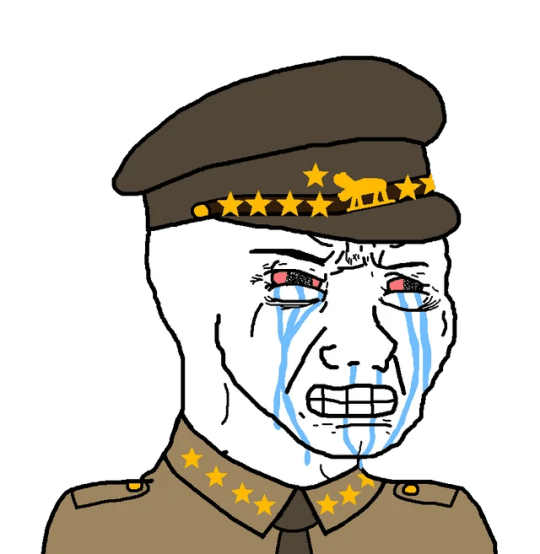

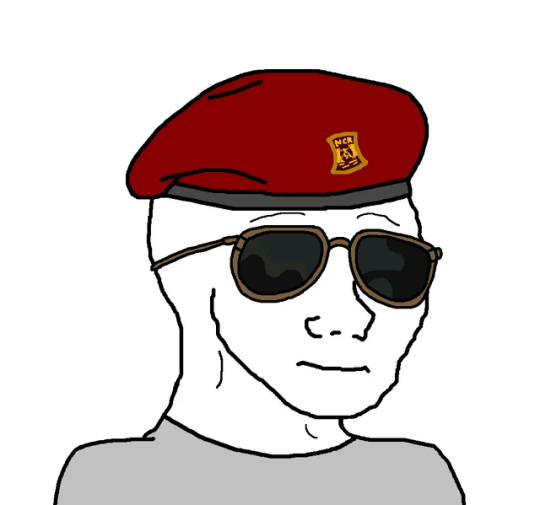
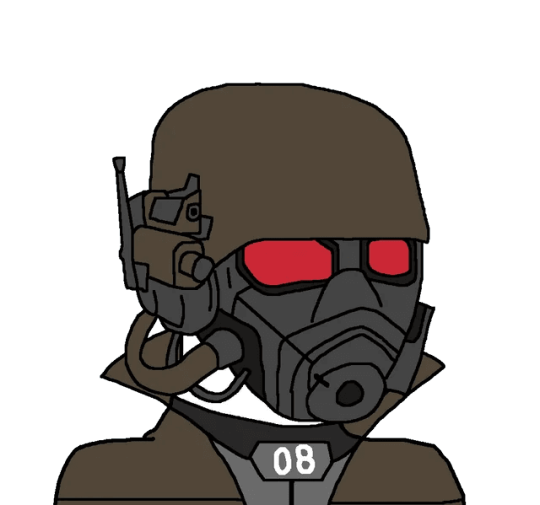

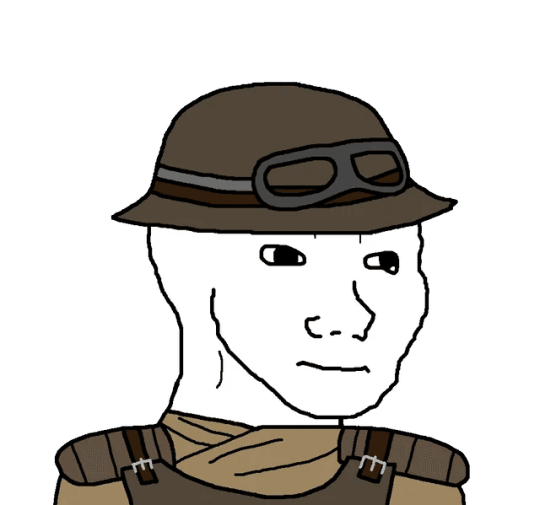
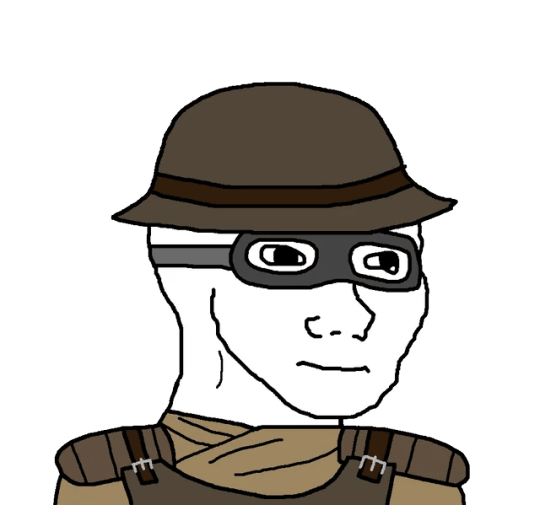














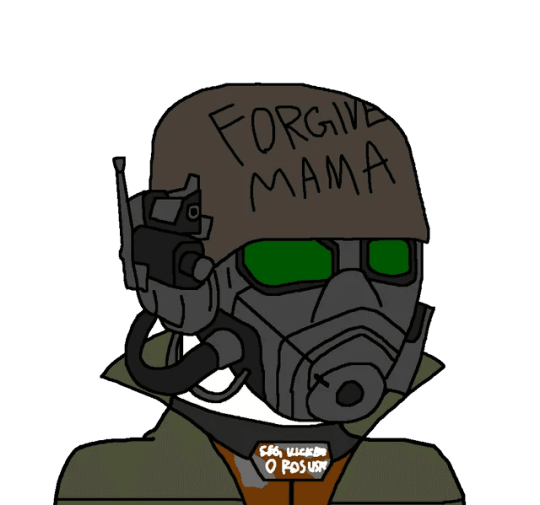

Title/Name: Fallout Wojak Collection - Part 2 Known As: Fallout is a media franchise of post-apocalyptic role-playing video games created by Tim Cain and Leonard Boyarsky, at Interplay Entertainment. The series is largely set during the first half of the 3rd millennium, following a devastating nuclear war between China and the United States, with an atompunk retrofuturistic setting and artwork influenced by the post-war culture of the 1950s United States, with its combination of hope for the promises of technology and the lurking fear of nuclear annihilation. Fallout is regarded as a spiritual successor to Wasteland, a 1988 game developed by Interplay Productions. The series' first title, Fallout, was developed by Black Isle Studios and released in 1997, and its sequel, Fallout 2, the following year. Fallout 3, the third entry in the main series, was released in 2008 by Bethesda Softworks, and was followed by Fallout: New Vegas, developed by Obsidian Entertainment released on October 19, 2010. Fallout 4 was released in 2015, and Fallout 76 released on November 14, 2018. Country: USA Wojak Series: Feels Guy (Variants), Crying (Variants), Blackjak (Variant), Chad (Variants), Smugjak (Variant), Yes Honey (Variant), Rage (Variant). Images by: Unknown Main Tag: Fallout Wojaks
Titles of the images and sources: #1 - President #2 - General Wait-and-see #3 - Ambassador #4 - Boone #5 - Ranger #6 - Ranger Chad #7 - Soldier 1 #8 - Soldier 2 #9 - Soldier 3 (Images 1 to 9 above were found on a post titled "Fallout New Vegas Wojaks Part 2: NCR", Link Here) #10 - Mr. House #11 - Crying Mr. House #12 - Chad Mr. House #13 - Smug Mr. House #14 - Empty TV where you can put Mr. House #15 - Mr. House in TV #16 - Real Mr. House #17 - Courier (Images 10 to 17 above were found on a post titled "Fallout New Vegas Wojaks Part 3: Mr. House + Courier", Link Here) #18 - Daniel #19 - Burned Guy #20 - Chad Joshua #21 - Follows-Chalk #22 - General Gobbledegook #23 - Randall #24 - Waking Cloud (Images 18 to 24 above were found on a post titled "Fallout New Vegas Wojaks Part 4: Honest Hearts Characters", Link Here)
#Wojak#Fallout#Video Game#Fallout Wojaks#Fallout Wojak Collection Part 2#Fictional Character#Feels Guy Series#Crying Series#Blackjak Series#Chad Series#Smugjak Series#Yes Honey Series#Rage Series#White#Brown#Gray#Red#Green#Pink#Art
54 notes
·
View notes
Text
Echoes through the cosmos
The final part of my Mecha AU coswave fic is done! It took me a while, but here it is. Parts one and two can be found here, and I hope you enjoy!
AU by @keferon and the base idea came from my friend @cosmique-oddity
Things are changing for Cosmos, in more ways than one. It doesn't have to be a bad thing.
“Greetings, little watcher,” comes from his headphones, completely out of nowhere, and Cosmos nearly stumbles on the treadmill.
“Good morning, big watcher,” he teases back, and blames the beginning of a blush spreading across his face on the exercise.
A staticky crackle carries through the tiny speakers. “Designation: Soundwave.” says the mech firmly, and Cosmos can’t help but burst into laughter.
Things have been better lately. That first bit of honesty seems to have opened the floodgates, and Soundwave’s voice is now a near-constant companion in his ear. The mech still prefers texting or using his vocal modulator, but every now and then, Cosmos gets to hear the real him, and he treasures every instance accordingly. And if Soundwave’s smooth, almost melodic voice inspires some slightly embarrassing thoughts at times? Well, that’s nobody’s business but his own, really.
“Just returning the favor, Soundwave,” he says, putting emphasis on the name. “It’s only fair to have a nickname for you too, though, wouldn’t you say?”
“Correction: greetings, Cosmos.”
Cosmos snorts. “Alright, alright, I see how it is. But I am going to find a nickname you like eventually, you know. Or, well- at least tolerate.”
“Negative,” comes over the speakers, deadpan as all get out. Cosmos just smiles again, shaking his head, before returning to his exercise.
Yeah, things are good.
-
“Waves.” Cosmos tries, impish grin on his face.
[Designation: Soundwave.]
“Soundy.”
[Negative.]
“Alright, alright,” he says between barely suppressed giggles. “Wavey?”
“No.”
“Sounders!”
The entire screen blacks out. “Wait, no, come back, I’m sorry-“
-
“Do your people have entertainment media? Books, movies, that sort of thing?”
[Affirmative,] appears on a mostly empty screen in front of him- it’s been a calm couple of days, the equipment not registering anything of import and leaving more than enough time for…well, whatever he wants, really. [Written works: currently most commonplace due to prolonged conflict. Holofilms available: old or amateurly produced.]
“Oh! Yeah, that makes sense. Hollywood has slowed down production as well, quite a bit in the past years.” Getting attacked and smashed to smithereens several times over hadn’t helped much. They’ve always recovered though, actors and writers refusing to give up their art, even if their budgets were cut down severely. “What do you like, then? How do you spend your free time?”
[Free time: rare commodity.] Soundwave writes, and he chuckles because right, fair enough. Head communications officer for an army at war, with four kind-of-not-really kids? That’s got to be busy.
Still, though. “I understand, but surely there’s something you enjoy? Got a favorite book, or a poem?”
“Soundwave: partial to music.” A pause. Then- “Would you like to hear some?”
The offer, along with Soundwave’s real voice, make Cosmos’ heart pick up the pace. Alien music! He’s about to hear real, actual music from another planet! Nodding, he turns to the camera behind him and gives the mech a giddy smile.
Soon enough, a gentle melody begins pouring out of his headphones, and- whatever he’s expected, it was not this. The song - or composition, more like - is alien, oddly complex and unbelievably beautiful.
There are no lyrics, he doesn’t think, but the interplay of different instruments still seems to tell a tale as the song progresses, changing and twisting on itself. It makes him think of two people, of a longing he finds so familiar, of warm clasped hands and stolen moments between the cold of melancholy. He sits in his chair, silent and entranced, as the melody goes through a crescendo, a painful conflict, before mellowing and fading out, like a peaceful embrace of two souls, now finally united for good.
When it’s all over, seconds or minutes or hours later, his vision is blurry with unshed tears. At the other end of the call, he could almost swear he feels Soundwave’s presence, watching him, sharing this moment with him.
Cosmos feels warm.
“Thank you,” he whispers into the receiver, wiping at his eyes but smiling, and he feels more than hears Soundwave’s answering hum. “Could you play it again?” he asks after a few minutes, and when the melody fills his ears once more, he simply closes his eyes and lets himself be carried away.
-
“I forgot to ask before, but was that Cybertronian music?”
“Negative,” comes through his headphones. “Composition: created by organic species.”
“Oh!” he wasn’t really expecting that, but then again, maybe it should have. it didn’t sound very, ah, mechanical? “Do you have any more from the composer? Or at least the same people?”
“Soundwave: in possession of one more unfinished melody from composer. Cosmos: interested in listening?”
“Gladly. Why was it not finished, though, do you know? Did something happen to the composer?”
“Affirmative. Species: nearly eradicated by quintesson forces. Creator of piece: deceased.”
Oh. That’s- he doesn’t know what to say. He’d never really given much thought to how other species might have fared against the invasion. Or that they might have actually lost.
“I’d still like to hear it, I think,” he says quietly. There’s nothing he can do for them now, for these aliens he’d never even met, but- he can remember them, at least. Keep a tiny piece of them alive through this.
As the new melody surrounds him with its unearthly tones, Cosmos wonders what Soundwave would keep of humans, if they lose this fight. What Soundwave would keep of him.
-
It dwells on his mind for weeks after, filling his empty hours with maudlin thoughts. He knows by now how unbelievably long a cybertronian’s life is, that his own lifespan is but a speck of dust by comparison, but still. Would the mech keep his face in his memory banks, or the human music playlist he’d made for him? Would he carry a piece of Cosmos with him into the distant stars, keep him close to his spark, or would all they shared be forgotten?
How much does this - whatever they have - matter?
Because it matters to Cosmos. He’s not sure when that happened, but his fascination with the alien mech and enjoyment of his company became- more. Much more. Now, when his soul aches for the presence of another person, it’s not his friends on earth he imagines being held by, or his parents. It’s large silver servos, careful and precise. it’s staring up at a glowing red visor and watching the sun gleam of grey and blue plating. It’s just- Soundwave.
And, well. What is he supposed to do with that?
He knows Soundwave likes him, yes. Enjoys his company, sure, he wouldn’t bother talking with him so frequently otherwise. But is there more to it? Soundwave is a hard person to read, especially with their only method of communication being text and radio. Cosmos had no way to know if he’s like a- a pleasant coworker to the mech, or a true companion, someone actually important.
He doesn’t know, but by god does he hope.
The song they’re listening to comes to an end, bringing Cosmos out of his thoughts. And, yeah, that’s something they do now, listen to music together, looking for things the other might enjoy. That’s… that could mean something, right? Only people who actually care about each other do that, no?
A surprisingly loud, staticky hiss sounds in his ears all of a sudden, and Cosmos flinches. “Soundwave, what-“
“Lost light: arrival impending.”
“Wh- really? When?”
“ETA: thirteen hours local time.”
Oh.
Of course.
It’s just- over the past two months, he’d somehow managed to completely forget about incoming the ship. He’d been so focused on his growing relationship with Soundwave that the knowledge of why the mech was actually here slipped his mind. Now, with reality of the situation staring him in the face, a jittery sort of dread fills his heart.
“Soundwave,” he says, wringing his hands in his lap, “how’s- what’s going to happen now?”
“Negotiation: will begin with human governments. Jazz: will be returned home, accompanied by Prowl.”
This is the first time he’s hearing of this Prowl person, and he will ask later, but- “And what about you? What will you do now?”
“Soundwave: will remain on Earth, join negotiation process.” There’s a pause, then- “I do not wish to cease our interactions, even once my work here is done. If you call, I will always listen, friend Cosmos.”
And- it’s a relief, hearing that. A huge weight falls off of Cosmos’ shoulders, joy making his heart beat overtime, however- things will undeniably change now. Their mostly quiet, familiar routine won’t last once first contact begins in earnest, and they’ll both be busy with their respective work. He’s delighted to hear he won’t lose Soundwave’s voice in his ear, but-
His stay at the station ends in less than two weeks. He won’t get to actually see Soundwave, most likely, not again. Won’t ever be this close to him again, not in person. And that’s- he thinks of the emergency repair space suit shoved in the storage compartment, of the ticking clock, and makes a decision.
“Soundwave? You said you edited yourself out of footage in real time, when you first arrived here, right? Could you do it again?”
“Affirmative. Query: reason for question?”
“I just- there’s something I need to do.”
-
He approaches the station, gliding through the vacuum of space with ease. It’s a tiny thing, as many earth things are- barely bigger than him in root mode. He’s once again reminded of an earth saying, stating that good things come in small packages, and though he’s not fully certain of its original, intended meaning, he finds himself agreeing nonetheless.
Watching the precious, fragile little person climbing out of the hatch with anxious, unpracticed motions, it feels truer than ever before.
The man’s suit is a colorful thing, yellow and green with red accents, his head surrounded by a fragile looking bubble of glass, protecting him from certain death in the cold, airless void. His hair is a bright, cheerful red as well, only outshined by the force of his smile as pushes off the hull of the station and into Soundwave’s waiting servos.
“Hello, little watcher,” he says, leaving the vocoder off and letting his true voice sound through the suit’s speakers.
Somehow, the human’s smile grows wider, and Soundwave feels his spark pulse with fondness. “Hello, Soundwave,” he says softly, blinking up at him with a combination of awe and unbridled joy. “You have no idea how glad I am to see you.”
If it’s anything like what he feels, Soundwave thinks as he brings the man closer, gently pressing his forehelm to the top of Cosmos’ helmet, then he can probably imagine.
64 notes
·
View notes
Text
My thoughts on Venom 3:
Warning, spoilers!
I liked it, but there’s a ‘but’.
So. I loved the first half. The dog scene was fantastic! And felt very true to them. The knocking people out part seemed a bit against Eddie’s morals, but was alright. The introduction of other symbiotes was cool. Seeing more of a focus on scientists and Jim as being imoortant characters —not just bodies— was really nice. And horse and FISH VENOM were EPIC!
I loved the ‘Space Oddity’ part, the Van family, and how you could see that Eddie was too hyper vigilant and dissociative to really be able to connect to the ‘fun’ aspects the others were enjoying. It was really bittersweet and made me feel strongly about his arc ending up where they can be happy together, even if it’s after some gnarly things, and even if the threats aren’t entirely gone. This was poignant and could have developed nicely.
But. Compared to the other two, and especially the first, I found the Knull plot to be too large scale, detracting from the two of them. The first film was like an Alien film, rooted in science. It was captivating to me, and an awesome take. I loved the interplay between the characters. Then they made it more like ‘purple man with gemstones and magic’ and maybe if it were directed by Guillermo Del Toro it would have worked, but to me, the based-in-science thing felt more like ‘them’. The Knull thing feels like sloppy writing, and a cop-out.
The Codex didn’t fully make sense, the xenophages were ‘Mary Sue’ characters, it didn’t feel like venom really died (which I’m very glad about, be it cockroach or viral shedding, but just wasn’t as emotive as I expected), the latter half lost the grit and feeling of ‘Eddie and Venom’, the montage music was an awful choice, and the Statue of Liberty scene lacked any real depth.
They coulda taken it further with the grittiness and showed how broken down Eddie would feel. They could have had more of Eddie asking ‘why’ than just going along with Venom’s decision to sacrifice himself. They could have hidden the codex and found weaknesses. They could have had a smaller scale threat, but still uniting humans and symbiotes.
They could even have worked with former ‘Life foundation’ employees to find a way to defeat the xenophages, and explored the conflicting feelings they’d have. They coulda experimented on Eddie. They could have interrogated him or all set out a clear plan. Tom Hardy’s acting is amazing and there were so many routes they could have taken to showcase it.
They needed to fuck off with the production queer baiting and have actually given us some solid romance and moments of closeness for the two of them. Even just Venom reassuring Eddie in a way we haven’t seen before.
The latter half just felt lackluster. There were great elements to it, but the montage and magical or occult elements dampened it for me.
Maybe I just feel like they deserved a PG16/18/R rating, given how beautifully intense and gritty this film could have been.
Venom 2018 captured it wonderfully.
#eddie brock#whump#eddie brock whump#symbrock#venom#venom 2018#eddie brock is a sub#eddie is so in love#can we talk#headcanon#they should do some sonyverse venom comics#venom the last dance#venom 3#venom symbiote
72 notes
·
View notes